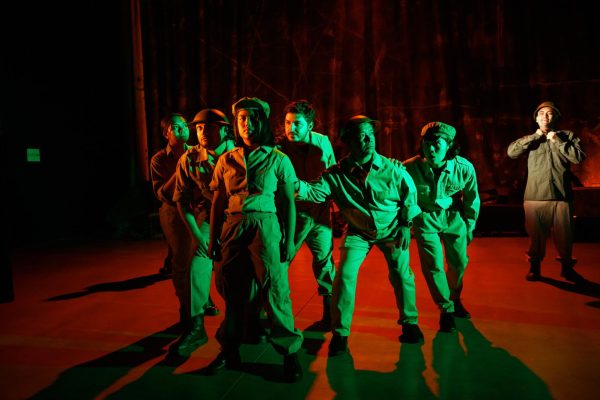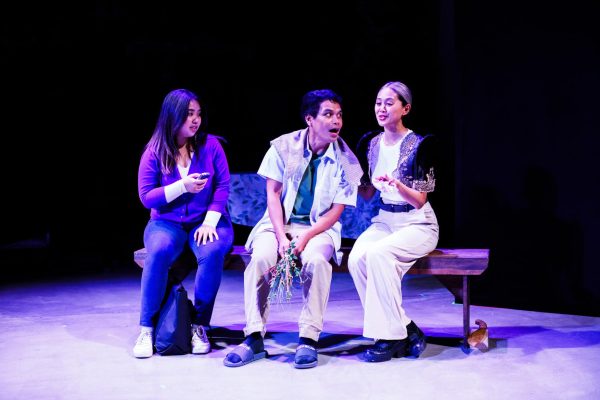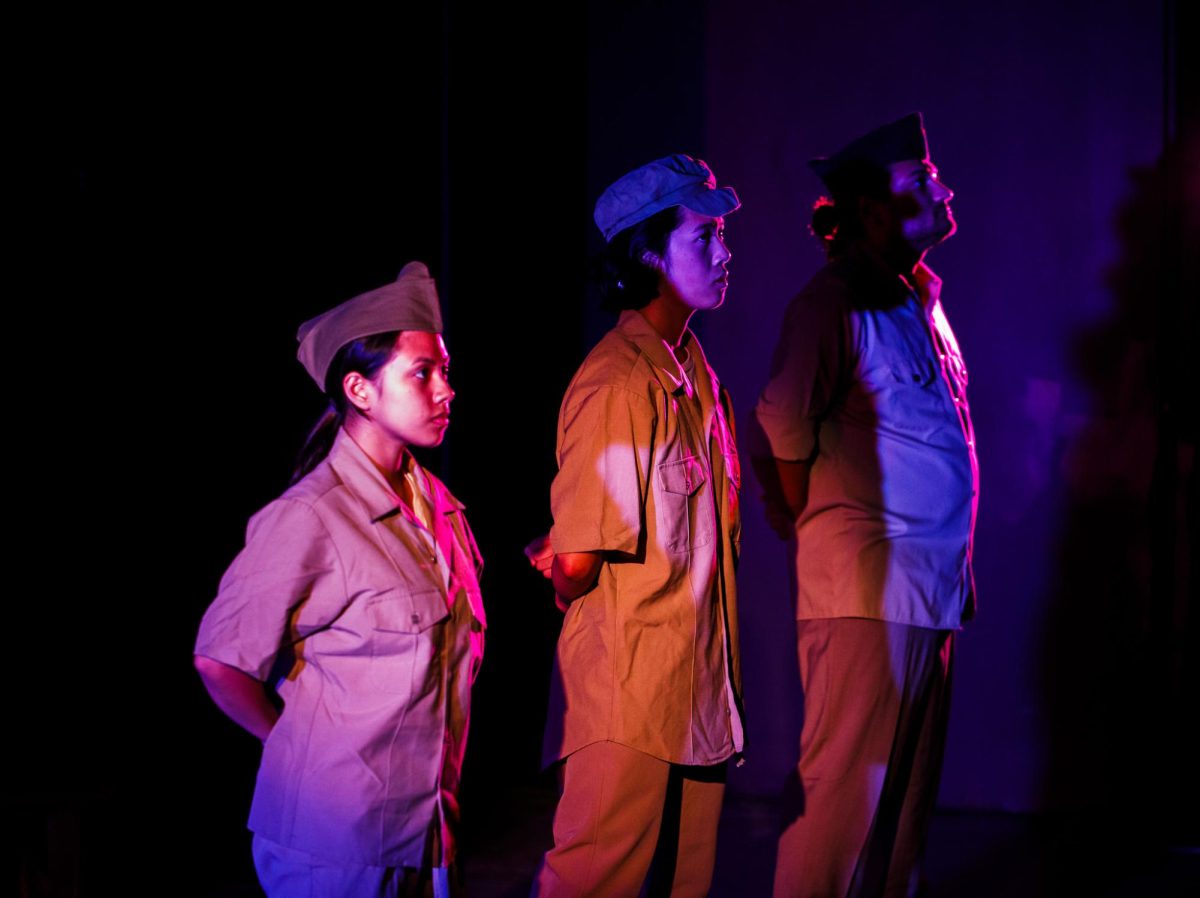Blindspot Collective, a San Diego-based theater company, ran their documentary-play, “Kagitingan,” at the Museum of Contemporary Art in downtown San Diego from Oct. 20 to 29— just two weeks left of national Filipino American History Month.
“Kagitingan” is based on the real stories of Filipino veterans who survived through World War II, and fought alongside American soldiers, as well as the traumas of war that scarred them for years after.
The documentary-play is centered around protagonist Evangeline, who is played by Dey Ilagan, a graduate student at San Diego State University. Evangeline, a student, is tasked with researching Filipino veterans for her dissertation.
The dialogue showcased in this documentary were taken from the actual interviews that were part of the doctoral research of Dr. Jimiliz Valiente-Neighbours.
The veterans explain how the Philippines was a colony of the United States during World War II, so Filipino soldiers were recruited to fight for the U.S. However, they were not treated equally within the military.
As Evangeline interviewed the different veterans, she learned about the racism they faced firsthand from American soldiers, including

violence and death.
Not only was the play deeply informative but the incorporation of song, dance and visual art created an artistic display of history that resonated with the audience.
Several Filipino folk dances were incorporated into the play, including Maglalatik and Tinikling, which are dances that involve the rhythmic clashing of coconut shells and dancing through moving bamboo sticks.
SDSU sophomores, Gabrielle Ocampo and Jayden Pagsolingan, were among the members of the ensemble who performed these cultural dances, as well as playing Filipino soldiers.
“This play not only opened my eyes, but I truly believe it opened the eyes of many other people to the struggles of what Filipino veterans had to endure,” Pagsolingan said.
Pagsolingan also added that performing in this play has helped him feel comfortable in his identity as a Filipino American.
Ocampo— also sharing this sentiment— mentioned how she gained insight into the history of Filipino veterans by simply being involved in the show.
The end of the play calls attention to how many Filipino veterans passed before they were able to receive compensation for their role in the war. This was due to the 1946 Rescission Act, in which the U.S. stripped them of the benefits they had been promised upon recruitment.
“I knew that Filipino veterans fought in the war, but I didn’t know about how little recognition they received,” Ocampo said. “(Now), the only thing we can do to give them justice is (the time) to simply tell their stories, and that’s why this play is important.”
In a somber finale, all the lights were turned off while the cast performed Pandanggo sa ilaw— a dance where one holds a candle in each hand and does slow and graceful arm movements.
The lit candles represented the souls of the Filipino veterans who have passed on, thus becoming “stars in the sky,” as one of the actors said. The dance produced a beautiful image of a sky full of stars and was accompanied by a vocal performance from one of the actors.

The audience was deeply touched by this emotional closing scene.
“The dance encapsulated not only the bad things about their experiences, but also their triumphs,” said Taryn Morales, an audience member and second-year at SDSU. “The beauty of the dancing and singing mixed together showed their resilience, in that they can still portray the beauty of life, but are also still fighting to expand their representation.”
“Everything had been building up to that moment,” Morales added, noting that the performance of Pandanggo sa ilaw was the culmination of the trials and tribulations of the soldiers, as well as a final appreciation of their journeys.
The actors ended the show with a call for justice for Filipino veterans, demanding that their voices be heard and their struggles acknowledged.
By bringing these stories into the spotlight, “Kagitingan” educates people on the bravery of these unsung heroes and helps society take one step closer toward giving them recognition.






